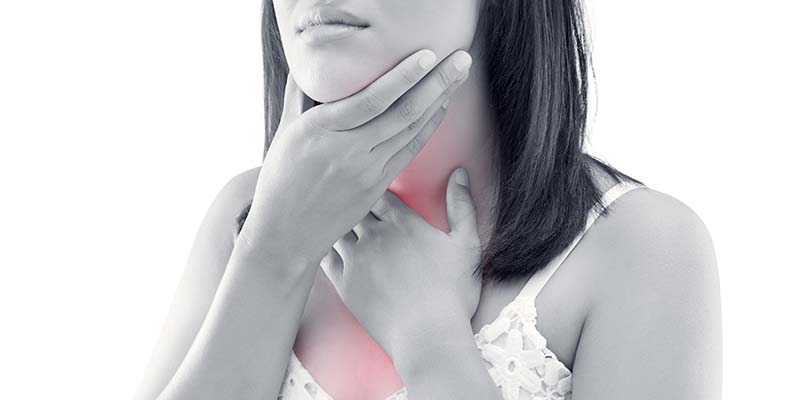Finding Sensitive Teeth Relief
Sensitive teeth are a common problem. Having sensitive teeth causes sharp pain in the mouth and gums. This pain can come on very suddenly and may last as long as several hours. In some cases, sensitive teeth are a minor inconvenience and not a major cause for concern. However, they can also be a sign of a serious underlying problem and should always be investigated by a dentist.
What Causes Sensitive Teeth?
Your teeth are made up of three layers: enamel, dentin, and pulp.
Enamel is hard and forms a protective layer on the outside of the teeth. Dentin is a softer substance that contains small, fluid-filled tubes. Pulp forms the inner layer and contains blood vessels, connective tissue, and nerves.
Below the gumline, there is a substance called cementum which covers the root of the tooth and helps keep it in place.
When the enamel of a tooth wears away, the dentin becomes exposed to everything you eat and drink. This is thought to cause changes in the fluid-filled tubes, which in turn impact nerves inside the pulp. Sometimes the gums can begin to recede and expose the cementum, which can also cause sensitive teeth.
Some of the most common causes of sensitive teeth include:
- Brushing your teeth too hard, causing your enamel to wear away
- Brushing your teeth from side to side
- Receding gums either due to age, smoking, or gum disease
- Dental erosion due to too many acidic foods and drinks
- Cracked teeth, damaged fillings, or cavities
- Grinding your teeth
- Whitening procedures which can cause temporary sensitivity
Certain foods and beverages are more likely than others to trigger sensitive teeth. These generally include options that are very hot or cold, acidic, or sweet.
What to Do for Sensitive Teeth Pain
The most obvious way to stop sensitive tooth pain is to identify and avoid trigger foods and drinks. These may not necessarily be the same for everyone, so try to keep a note of anything that triggers an attack and stays away from it in the future.
Although staying away from triggers can prevent sensitive tooth pain from happening, it is not always an ideal solution, especially if you are sensitive to one of your favorite foods!
Fortunately, there are plenty of other sensitive teeth relief options available to help you enjoy your meals without any pain. Many of these can be done easily at home, but you may need dental treatment to provide lasting relief.
While there are some clear health benefits to having a pet, there are also some unhealthy downsides. Learn more about getting sick from pets here.
Sensitive Teeth Relief Options
Let’s take a look at some of the best sensitive teeth relief options and how they could benefit you.
Avoid Trigger Foods
Not only can certain foods trigger sensitive teeth pain, but some can increase your risk of dental erosion and long-term damage to the teeth. Avoid sugary or acidic foods and drinks or only have them alongside meals.
Some of the worst foods and beverages for sensitive teeth include:
- Sugary or carbonated drinks
- Fruit Juice
- Citrus fruit
- Tomatoes
- Candy
- Very hot or cold food/drinks
Practice Good Oral Hygiene
It is important to practice good oral hygiene to protect your enamel and prevent gum disease from developing in the future.
- Brush your teeth twice a day using a fluoride-containing toothpaste
- Brush your teeth for two minutes each time
- Use gentle, up and down or circular brushing movements
- Avoid brushing side to side or scrubbing your teeth too hard
- Do not brush your teeth too soon after eating
- Use a soft or medium toothbrush and replace it at least every two to three months
- Floss regularly
- Use a gentle fluoride mouthwash after brushing
- Visit your dentist as often as advised
Try Sensitive Toothpaste
Some brands of toothpaste contain desensitizing ingredients which can help numb sensitive teeth. For these kinds of toothpaste to work, you will need to use them daily, and it might take a few weeks before you see a noticeable difference.
As well as using sensitive toothpaste to brush your teeth, you can try rubbing a small amount directly onto very sensitive areas. It is best to do this after you have brushed your teeth at night.
Stop Smoking
Smoking is a major cause of gum disease and tooth loss. It can also cause your gums to recede more quickly than normal, leaving your cementum exposed and increasing sensitivity. If you need help to stop smoking, ask your physician or pharmacist for support.
Dental Treatments
Dental treatments for sensitive teeth include applying a fluoride-containing gel, rinse, or varnish to the teeth. Fluoride helps to protect the enamel and reduce sensitivity over time. These products need to be applied regularly over several weeks to be effective.
If you have cavities, cracked teeth, or damaged fillings, these will need to be repaired. This will stop food and drink from reaching the dentin layer of the tooth and should offer some sensitive teeth relief. For some people, more extensive dental work such as root canal surgery may be necessary.
Use a Mouthguard
If you grind your teeth, you can quickly wear away your enamel and leave your teeth feeling more sensitive than normal. Many people grind their teeth in their sleep without knowing that they are doing it until it’s too late, and they have sensitive teeth.
Your dentist should be able to spot the signs of tooth-grinding and can provide you with a mouthguard to wear at night and protect your teeth from further damage.







